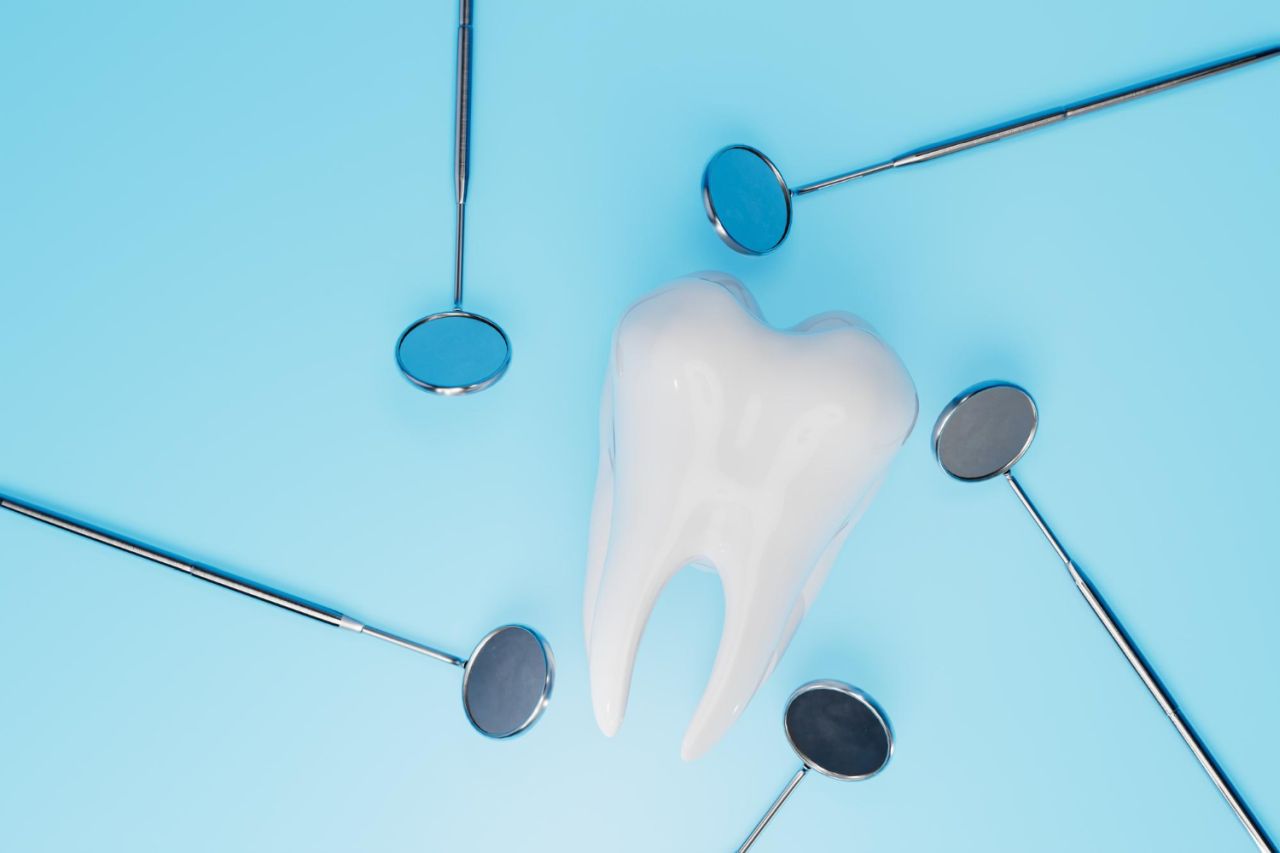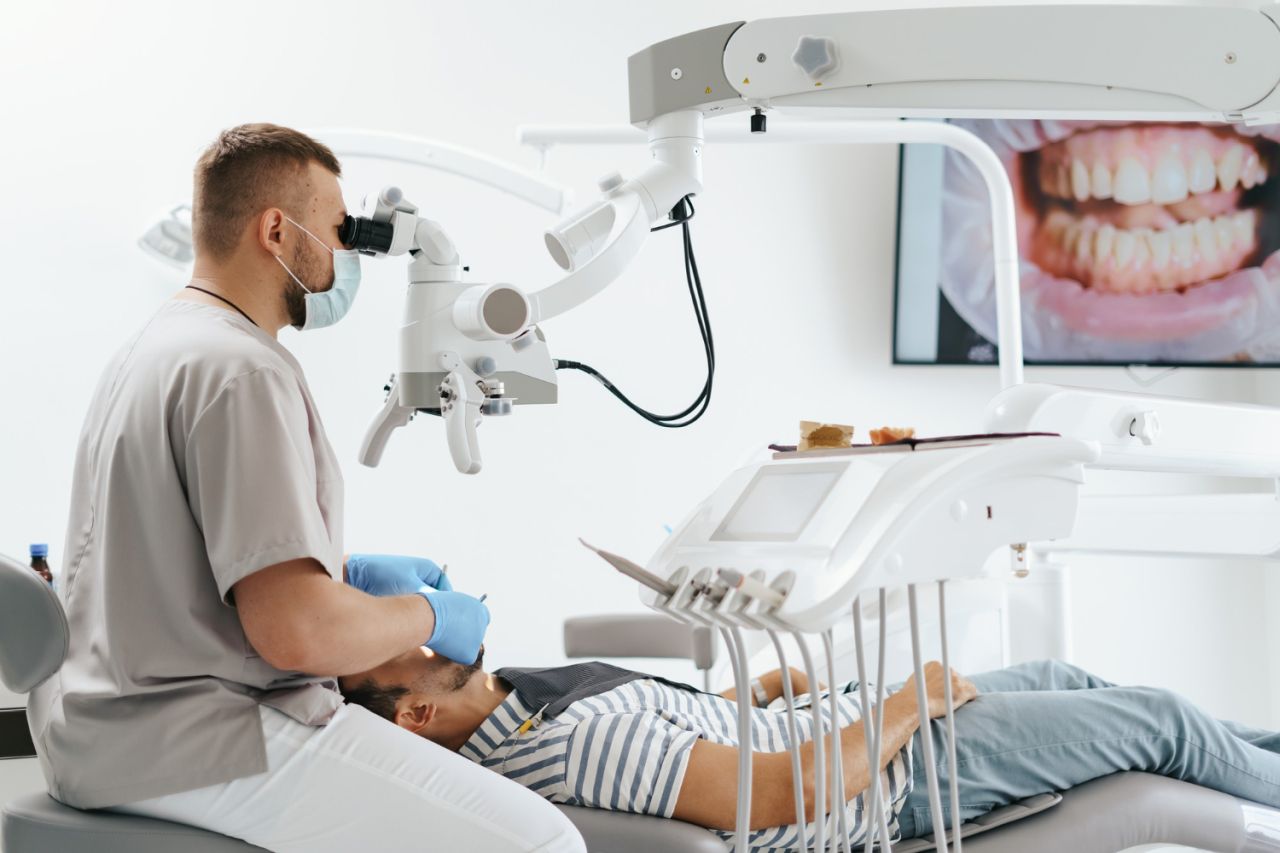The Functions of Molars and Wisdom Teeth

Molars and wisdom teeth are often seen as just extra teeth, but they actually have important functions in the body. For example, molars help chew food, while wisdom teeth help clean the mouth. Without these teeth, people would have a harder time eating and are more prone to cavities.
Wisdom teeth can also help remove debris from the tongue and gums. So next time you think about getting your wisdom teeth pulled, remember that they play an important role in oral health!
Molars and wisdom teeth have important functions, even though they often cause problems. This post will explain those functions and why problems arise with these teeth.
You’ll also learn when to see a dentist about potential issues. Read on to learn more!
What Are Molars?
Molars are teeth found at the back of the mouth and have a rounded, flat appearance. Your wisdom teeth are included in this group.
Molars come in a variety of sizes and shapes but are always the biggest teeth in the mouth. Therefore, they are also referred to as molar teeth.
The smaller, more pointed frontal teeth are used for biting and ripping food, while the larger, duller back teeth are responsible for grinding food into pieces that are easier to swallow.
Molars are constructed to withstand significant levels of force that can be applied during the chewing, grinding, and clenching processes. In spite of the fact that evolution has not yet reduced the size of our wisdom teeth, it has, sadly, reduced the size of our jawbones at various points during our species’ existence.
Even with the recent surge in interest in so-called “Paleo diets,” modern people do not eat items that necessitate the presence of these additional teeth. It is no longer necessary to have wisdom teeth because our diets often consist of much softer foods, and the use of cooking and eating utensils has rendered this tooth obsolete.
Nevertheless, evolution has not yet caught up with us, so we still receive those extra teeth later in our childhood.
People often refer to the molars in their mouths as the “tough workhorses” of the teeth.
Types of Molars
Twelve molars are present in the mouths of most adults, with three located on each side of the upper and lower jaws, respectively. There are three distinct varieties of molars, and they are as follows:
- First molars are sometimes called six-year molars since they typically erupt between the ages of six and nine.
- The second molars, popularly known as the “twelve-year molars” because they don’t erupt until around the age of 12,
- Third molars, often known as wisdom teeth, typically erupt between the ages of 17 and 21, but sometimes they might erupt earlier.
Molars are constructed to withstand significant levels of pressure that can be applied during the chewing, grinding, and clenching processes. This is due to the huge contact area of their teeth and the between two and four root systems that are deeply integrated in the patient’s jaw bone.
Why Do We Have These Third Molars in Our Mouths?
The third molars, often known as wisdom teeth, are holdovers from a time in human development when the mouth was substantially bigger and could contain a greater number of teeth.
They were helpful for chewing particularly gritty items, such as tubers, nuts, leaves, and difficult meats, which they could do effectively.
This kind of eating was hard on the teeth, particularly when you consider that people didn’t have access to useful dental maintenance products like toothbrushes, toothpaste, and dental floss back then.
Because of this, our ancestors’ teeth experienced tremendous deterioration and eventually fell off owing to tooth rot.
Foods that would have required these additional teeth are no longer consumed by people today.
But, on the other hand, evolution has yet to catch up to this development, which is why humans still grow those extra teeth about the time they reach maturity.

They Are Not Possessed By Everyone
It is estimated that 37% of the population either does not grow their wisdom teeth at all or does not have all four. A number of knowledgeable people credit this to the evolutionary process.
What Are Wisdom Teeth Used For?
Even though they can be helpful as a third set of molars if they grow appropriately, wisdom teeth do not provide a job that is considered particularly essential today.
On the other hand, wisdom teeth are an intriguing aspect of human evolution, and it can be beneficial to understand their function.
What Are The Wisdom Teeth Supposed To Do?
Wisdom teeth, also known as third molars, were utilised by our ancestors significantly more frequently than modern humans.
This is because our human predecessors lived a long time ago. In a universe where flesh was not prepared all the way through, keen blades weren’t used to chop the flesh into tiny bits, and chewing food needed significantly more force on the jaw, a third set of molars was an absolute necessity.
Nevertheless, as we matured and evolved, the wisdom teeth became less and less useful to us.
This is because we now eat foods in a widely differing way, which requires significantly less ripping, chewing, and crushing than in the past.
Even if the function of wisdom teeth in humans has diminished over time, people who are fortunate enough to have their third molars develop normally may still benefit from having them.
Why Wisdom Teeth Aren’t Necessary Today
Bring things up to date and look closely at the food we are now consuming. Examine, more crucially, the methods by which we make the food we consume. For example, there is a widespread belief among dental professionals that the consumption of foods that are on the softer side, particularly when one is young, may contribute to the development of impacted wisdom teeth.
We prepare practically all we consume by dicing, chopping, boiling, steaming, and baking it. However, because of all the work put into preparing the food, eating has become a rather simple task.
The manner in which food is cooked and eaten may be responsible for the gradual narrowing and diminution of the width of our jawline over the course of human history.
Tougher meals accelerate jaw growth in youth, increasing the likelihood that a child will have space for their third tooth. In addition, because our jaws no longer have space to hold wisdom teeth and because they are no longer required, we often need to have them pulled.
This is because our jaws have evolved past the point where they were essential.
What Are The Initial Symptoms Of Wisdom Teeth Emergence?
Several indicators and signs can be used to determine whether or not you have wisdom teeth growing in. You might have observed:
- Gums that are swollen or red, especially towards the back of your teeth where your molars are.
- Tenderness or soreness in the jaw.
- Facial pain because of the wisdom teeth’ impact on the surrounding nerves.
- You can see some white flecks at the back of your last teeth. These bumps are most likely the crowns of your newly erupted teeth that have broken through the gums.
The Difficulty Involved With Third Molars
Due to the fact that development has caused the human jawbone to become smaller, wisdom teeth have evolved into an issue.
Many researchers believe that our predecessors had considerably broader jaws, which made it much easier for them to accommodate their wisdom teeth after they had fully grown in.
The requirement for wisdom teeth has decreased over time, which has led to a reduction in the size of our jaws. As a result, many people no longer have enough space in their jaws for their wisdom teeth to erupt correctly.
For these types of patients, having their wisdom teeth extracted is the only way to ensure that their other teeth, gums, or jawbone are not compromised in any way.
When these impacted wisdom teeth attempt to erupt through the gums, this can cause a wide range of complications.
- As the wisdom teeth develop, they run the risk of having their path to normal eruption obstructed by adjacent teeth. This is what people mean when they talk about being “impacted.”
- If a wisdom tooth does erupt, it can cause the mouth to become crowded and create areas that are difficult to cleanse, where germs can flourish, which can result in severe diseases of the gums and the tissue that surrounds them.
- It’s also possible that your wisdom teeth will never erupt. If they are not removed, this can result in cysts or tumours, which, if left untreated, can cause serious harm to the jawbone (mandible) and the teeth.
When wisdom teeth erupt improperly, it can result in the displacement of other teeth, extreme discomfort and inflammation, making it challenging to maintain the mouth clean and pose problems with the jaw.
These issues are just a few causes why the extraction of a person’s wisdom teeth may be necessary for them. This operation is typically advised for young adults since this age group is often young enough to avoid or significantly reduce the likelihood of problems.
There are some people who do not have any issues when their wisdom teeth erupt. According to the findings of one study, approximately 15% of the whole demographic falls into this category.
Even in these circumstances, the wisdom teeth removal may be necessary to prevent issues from occuring later in life when surgical procedures have longer recovery times and a higher chance of problems.
Preparing For Wisdom Tooth Extraction
Because they anticipate the process as excruciatingly uncomfortable, many people delay getting their wisdom teeth extracted for as long as possible.
Since the patient is put under anaesthesia during the extraction of wisdom teeth, the process itself does not cause any discomfort; nevertheless, the patient may experience some inflammation and pain in the days and weeks after the operation.
When a patient has impacted wisdom teeth or wisdom teeth that have grown in improperly, the procedure to extract them involves putting the patient under anaesthesia, making a small cut is made in the gums so that the teeth can be accessed completely, attempting to remove the teeth, cleaning the area, and then stitching the gums back together.
After having your wisdom teeth out, it is essential to practise good oral hygiene and refrain from performing activities that can aggravate the wounds left behind.
Recovery Period Following Surgery
In most cases, the healing process takes only a few days, but you may be required to schedule some time off from work.
Nevertheless, it is possible that swelling, pain, and jaw opening will continue to be an issue for several weeks following the treatment.
Although soreness is a common aftereffect of having wisdom teeth out, if you have any odd symptoms such as pus discharge, significant edema, extreme pain, or inflammation, you should get in touch with your dental professional as soon as possible.
What Are The Most Popular Wisdom Teeth Treatments?
The extraction of one’s third molars is the most typical therapy. In most cases, you will be sedated throughout this treatment, which will take place in your dentist’s office or an orthodontist’s office.
However, if necessary, it may also be performed in a hospital under the influence of the general anaesthetic.
The extraction of one’s wisdom teeth is a procedure that can be performed on patients of any age. However, in order to protect their oral health in the future, many people opt to have their wisdom teeth out when they are in their late teens or early twenties.
After having your wisdom teeth out, the normal recovery time is approximately one week. Your doctor will provide you with a set of aftercare guidelines to follow to ensure that you have an easy and pleasant healing after surgery.
In contrast to other teeth, wisdom teeth do not serve a particularly important purpose. Therefore, it is not necessary to substitute them once they have been taken out of the equation.
Treatment Options
When it comes to having your wisdom teeth extracted, you have two different choices. The first one will take place in the dental chair while the patient is under local anaesthetic.
The second option is to have the procedure done under general anaesthesia or dental anesthetic, both of which can be administered by an oral surgeon. Your healthcare provider will guide you as to which option is ideal for your situation.
If They Aren’t Causing You Any Pain, Do You Really Need To Have Them Extracted?
Certainly, only in some cases. Even if you never experience any symptoms, having wisdom teeth that are impacted still puts you at risk for developing future issues.
If your wisdom teeth don’t cause any issues, your orthodontist would most likely advise you to keep them in your mouth. However, you need to schedule routine appointments with your dental professional to ensure that you do not have any dental issues, such as cavities or gum disease.
Risks
If you decide not to take your wisdom teeth out, your orthodontist will need to supervise them to ensure that no complications arise, such as the following:
- Infection: Gum disease is a risk factor for infection in the wisdom teeth if they are not cleansed adequately.
- Discomfort: Your wisdom teeth may move when they grow in or over time, which will cause them to pull on your other teeth and result in discomfort.
- Cavities can develop if you have problems reaching your wisdom teeth to brush or floss them properly. This can increase your risk of developing cavities.
How Should I Take Care of My Wisdom Teeth?

If you still possess your wisdom teeth, your orthodontist will examine them at regular checkups to ensure they are in good condition. In addition to keeping routine visits with your orthodontist, you need to:
- Brush your teeth at least twice or thrice daily. When it comes to your wisdom teeth, the back regions can be tough to access. So spend time to ensure that you are thoroughly cleaning even the parts that are difficult to access.
- It would be best to floss your teeth at least once daily. To thoroughly clean the space between your teeth, use dental floss. For areas that are difficult to access, you may also use dental picks or interproximal brushes, which are very small brushes that fit in the spaces between your teeth.
- Make use of a mouthwash that fights bacteria. Check to see that it does not contain any alcohol. This helps lessen the likelihood of you experiencing dry mouth.
Summary
The large, flat teeth at the very rear of your mouth are called molars. They can withstand a significant amount of force because of their design, which allows them to crush and grind food.
There are three different types of molars: wisdom teeth, six-year molars, and twelve-year molars. Because the food of the modern human does not need wisdom teeth, we refer to them as vestigial, which means they are a holdover from a previous period in humanity’s history.
Due to the fact that human jaws have become smaller throughout the course of development, there is frequently insufficient space for the wisdom teeth to erupt. This can result in various issues, which is why most people eventually must have their wisdom teeth out. When you’re younger, you have a lower risk of complications during surgery and a quicker recovery time thereafter.
FAQs
1. What exactly is it that makes the molars hurt?
The following are some potential reasons of molar distress:
- Cavities
- A tooth that is broken or cracked
- Teeth with an abscess
- Damaged filling
- Clanking your teeth together
If the discomfort is severe or lasts more than one or two days, you should make an appointment with your dentist. If you also have edema, fever, an earache, or discomfort when extending your mouth wide, you should arrange a visit with your doctor as soon as possible.
2. What time do baby teeth erupt?
The first set of molar teeth for your child will most certainly start to erupt between the ages of 13 and 19 months. Then, between the ages of 25 and 33 months, the final set of infant molars might finally finish coming in. These eventually fall out to make room for the adulthood molars in the mouth.
3. At what age do children lose their molars?
It varies. In most cases, the loss of a child’s primary (baby) molars occurs between the ages of 9 and 12.
4. How will your dentist determine whether or not you require the removal of your wisdom teeth?
Your orthodontist will undertake a comprehensive dental checkup, which will include a description of your problems and overall health, an evaluation of your teeth and gums, and dental images, including x-rays, which will verify the diagnosis of your impacted wisdom teeth.
